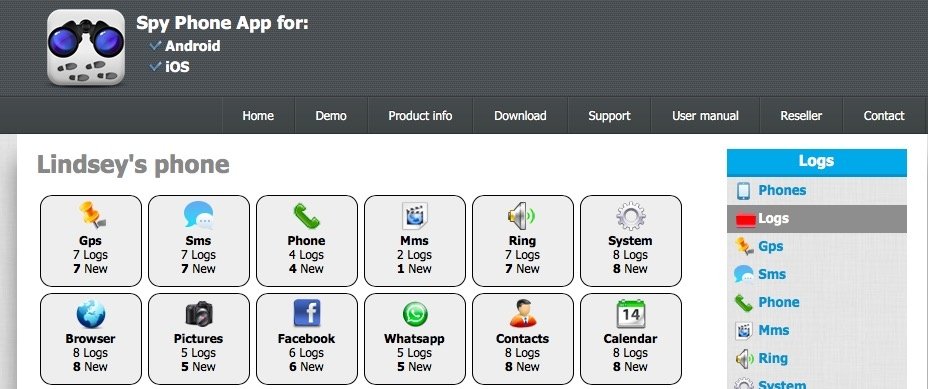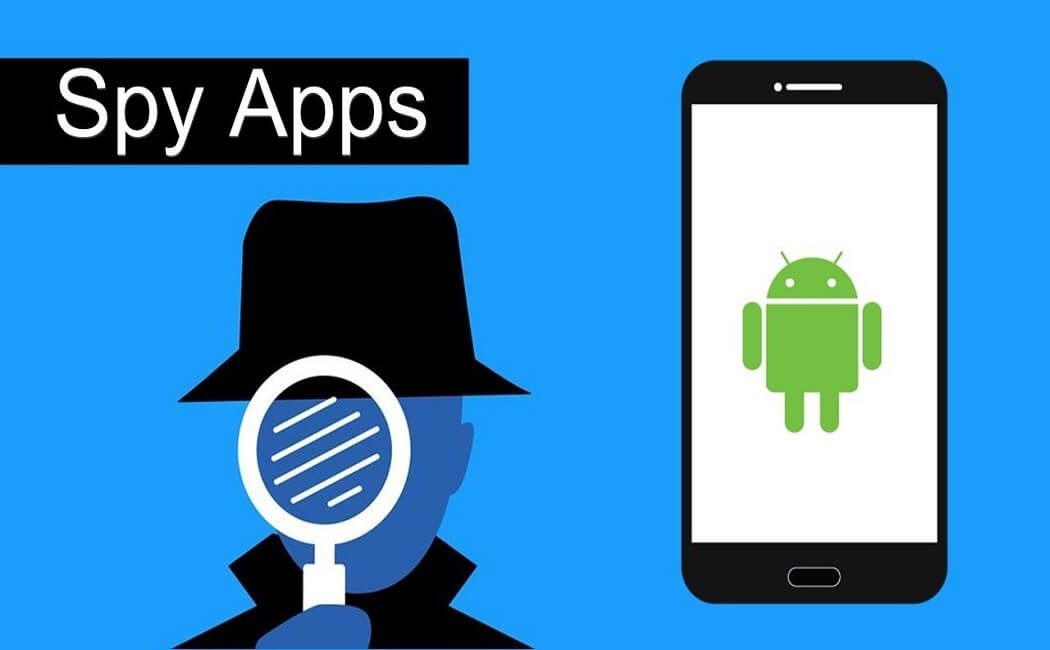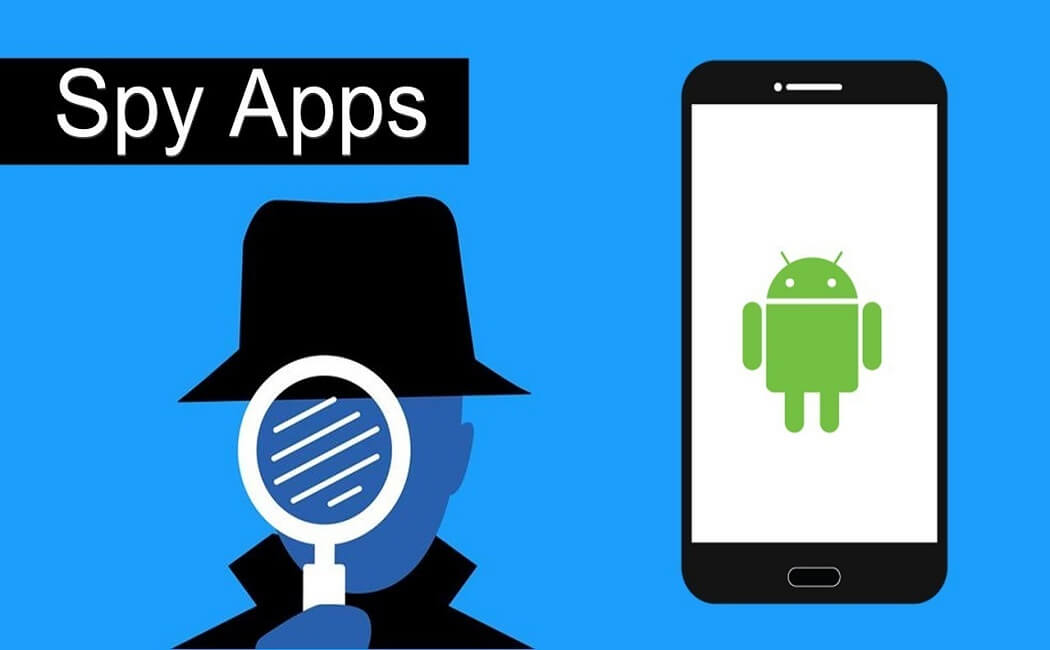Spy phone apps have become increasingly prevalent, raising both privacy concerns and practical applications. These apps, designed to monitor phone activity remotely, offer a range of functionalities, from parental oversight to employee tracking. However, their use is often shrouded in ethical and legal complexities, demanding a nuanced understanding of their capabilities, limitations, and potential consequences.
Table of Contents
This guide delves into the intricate world of spy phone apps, exploring their technical workings, legal implications, and various applications. We will examine the different types of apps available, analyze the data they collect, and discuss the risks and security concerns associated with their use. Additionally, we will explore ethical considerations surrounding their deployment and provide insights into alternative methods for achieving similar functionalities.
Legal and Ethical Considerations

Spy phone apps, while seemingly offering a convenient way to monitor devices, raise serious legal and ethical concerns. Their use can have significant consequences for individuals and society, particularly when it comes to privacy rights, consent, and the potential for misuse.
Privacy Laws and Consent
Privacy laws around the world aim to protect individuals’ personal information, including data collected from their phones. These laws often require explicit consent from the phone owner before any monitoring or data collection can take place. Spy phone apps often bypass these legal requirements, as they typically operate in a covert manner, without the knowledge or consent of the phone user.
- In the United States, the Electronic Communications Privacy Act (ECPA) and the Stored Communications Act (SCA) govern the interception and disclosure of electronic communications. These laws generally prohibit the interception of electronic communications without a warrant or the consent of the parties involved.
- The European Union’s General Data Protection Regulation (GDPR) places strict regulations on the collection and processing of personal data. This regulation requires organizations to obtain explicit consent before collecting and processing personal data, and it gives individuals the right to access, rectify, and erase their personal data.
- Many other countries have similar privacy laws in place, emphasizing the importance of obtaining consent before collecting and using personal data.
The use of spy phone apps without consent can therefore violate these laws, potentially leading to legal repercussions for the individuals or organizations involved.
Ethical Concerns
Beyond legal implications, the use of spy phone apps raises serious ethical concerns. The covert nature of these apps allows for the invasion of privacy, potentially leading to misuse and harm.
- Using a spy phone app without the consent of the phone owner can be considered a violation of their privacy and a breach of trust. This can have a significant impact on the individual’s sense of security and autonomy.
- Spy phone apps can be used for malicious purposes, such as harassment, stalking, or blackmail. Individuals who are unaware that their phones are being monitored may be vulnerable to these forms of abuse.
- The lack of transparency surrounding the use of spy phone apps can create an environment of mistrust and suspicion. This can be particularly damaging in relationships, both personal and professional.
Examples of Misuse
There have been numerous cases where spy phone apps have been used for illegal or unethical purposes.
- In 2017, a man in the United States was convicted of using a spy phone app to secretly record his wife’s conversations without her knowledge or consent. He was sentenced to prison for violating the Electronic Communications Privacy Act.
- In 2019, a company in the United Kingdom was fined for using spy phone apps to monitor its employees’ personal devices without their consent. The company argued that it was using the apps to protect its data, but the regulatory body ruled that the company had violated the employees’ privacy rights.
These examples illustrate the potential for harm and legal repercussions associated with the misuse of spy phone apps.
Parental Monitoring Applications
Parental monitoring applications are software programs designed to provide parents with insights into their children’s online activities and device usage. These apps offer various features to help parents ensure their children’s safety and well-being in the digital world.
Purpose and Features of Parental Monitoring Apps
Parental monitoring apps aim to provide parents with tools to oversee their children’s online activities, safeguard them from potential risks, and promote responsible technology use. Common features of these apps include:
- App and Website Blocking: Parents can restrict access to specific apps, websites, or content deemed inappropriate for their children.
- Location Tracking: Some apps allow parents to track their children’s real-time location, providing peace of mind and ensuring their safety.
- Call and Text Monitoring: Parents can view call logs, text messages, and even monitor social media interactions, providing visibility into their children’s communication patterns.
- Content Filtering: These apps can filter out explicit content, inappropriate websites, or potentially harmful materials, protecting children from exposure to harmful or offensive content.
- Usage Monitoring: Parents can track the amount of time their children spend on specific apps or devices, helping them establish healthy screen time limits and promote balanced technology use.
Benefits and Drawbacks of Using Parental Monitoring Apps
Parental monitoring apps offer potential benefits for parents, but it’s crucial to consider the potential drawbacks before implementing them.
Benefits:
- Enhanced Safety: These apps can help protect children from cyberbullying, online predators, and exposure to inappropriate content.
- Increased Communication: Monitoring tools can provide opportunities for parents to initiate conversations with their children about online safety and responsible technology use.
- Promoting Healthy Habits: Parental monitoring apps can help establish healthy screen time limits and encourage balanced technology use.
Drawbacks:
- Privacy Concerns: Monitoring children’s online activities raises concerns about their privacy and autonomy. It’s crucial to have open communication with children about the use of these apps and respect their privacy boundaries.
- Trust Issues: Excessive monitoring can erode trust between parents and children, potentially leading to resentment and rebellion.
- Potential for Misuse: Parental monitoring apps can be misused for control or surveillance, creating a negative and unhealthy parent-child relationship.
Examples of Parental Monitoring Apps
Several popular parental monitoring apps are available, each offering a unique set of features and pricing options.
- Qustodio: This comprehensive app offers features like app blocking, website filtering, location tracking, and screen time management. It also provides detailed reports on children’s online activity.
- Bark: Bark focuses on monitoring social media and text messages, detecting potential cyberbullying, online predators, and inappropriate content. It also offers a strong emphasis on parental education and resources.
- Google Family Link: Google Family Link is a free app that allows parents to set screen time limits, manage app access, and track their children’s location. It’s integrated with Google services, making it convenient for Android users.
- Net Nanny: Net Nanny offers a robust set of features, including website filtering, app blocking, content filtering, and time management. It also provides parental controls for gaming consoles and other devices.
Comparison of Popular Parental Monitoring Apps
| App | Features | Pricing | User Reviews |
|---|---|---|---|
| Qustodio | App blocking, website filtering, location tracking, screen time management, detailed reports | Free version with limited features, paid plans starting at $54.99 per year | 4.5 stars on Google Play, 4.3 stars on the App Store |
| Bark | Social media and text message monitoring, cyberbullying detection, online predator detection, parental education resources | Free trial, paid plans starting at $9.99 per month | 4.7 stars on Google Play, 4.6 stars on the App Store |
| Google Family Link | Screen time limits, app access management, location tracking | Free | 4.2 stars on Google Play, 4.4 stars on the App Store |
| Net Nanny | Website filtering, app blocking, content filtering, time management, parental controls for gaming consoles | Paid plans starting at $39.99 per year | 4 stars on Google Play, 4.1 stars on the App Store |
Employee Monitoring Applications
Employee monitoring applications are software programs designed to track and monitor employee activity on company-owned devices and networks. They are often used by businesses to enhance productivity, ensure security, and comply with regulations.
Purpose and Features of Employee Monitoring Apps
Employee monitoring apps serve a variety of purposes, including:
- Productivity Tracking: These apps monitor employee activity, such as time spent on specific tasks, website visits, and application usage. This data can help businesses identify areas where productivity can be improved.
- Security Monitoring: Employee monitoring apps can detect suspicious activity, such as unauthorized access to sensitive data or attempts to download malware. This helps businesses protect their data and systems from security threats.
- Compliance Monitoring: Some industries have strict regulations that require businesses to monitor employee activity. Employee monitoring apps can help businesses comply with these regulations.
Common features of employee monitoring apps include:
- Keystroke logging: Records every keystroke an employee makes, including passwords and sensitive information.
- Website and application monitoring: Tracks websites visited and applications used by employees.
- Screen recording: Captures screenshots or videos of the employee’s computer screen.
- GPS tracking: Monitors the location of employees who use company-owned mobile devices.
- Email and chat monitoring: Tracks employee emails and instant messages.
Legal and Ethical Considerations, Spy phone app
The use of employee monitoring apps raises significant legal and ethical considerations.
- Privacy concerns: Employee monitoring apps collect vast amounts of personal data, raising concerns about employee privacy. It is crucial to have clear policies and procedures in place to ensure that employee data is collected and used ethically and legally.
- Employee consent: Employees should be informed about the use of monitoring apps and their rights. Obtaining explicit consent from employees is essential, especially for invasive monitoring practices.
- Legal compliance: Laws regarding employee monitoring vary from country to country. Businesses must comply with all applicable laws and regulations. For example, in the United States, the Electronic Communications Privacy Act (ECPA) and the Stored Communications Act (SCA) restrict the interception and disclosure of electronic communications.
Examples of Employee Monitoring Apps
Several employee monitoring apps are available in the market. Some popular examples include:
- Teramind: This app offers comprehensive monitoring features, including keystroke logging, website and application monitoring, screen recording, and email and chat monitoring. It also provides advanced analytics and reporting capabilities.
- Hubstaff: Hubstaff focuses on productivity tracking and time management. It offers features such as time tracking, screenshots, and activity monitoring. It also integrates with popular project management tools.
- Time Doctor: Similar to Hubstaff, Time Doctor is a time tracking and productivity monitoring app. It provides features such as website and application monitoring, screenshots, and idle time detection.
Best Practices for Using Employee Monitoring Apps Responsibly
To use employee monitoring apps responsibly, businesses should follow these best practices:
- Have a clear policy: Develop a written policy outlining the purpose, scope, and procedures for employee monitoring. This policy should be communicated to employees and readily accessible.
- Obtain employee consent: Obtain explicit consent from employees before implementing any monitoring practices. This consent should be informed and freely given.
- Use monitoring apps only for legitimate business purposes: Avoid using monitoring apps for personal reasons or to micromanage employees. The primary purpose should be to enhance productivity, security, or compliance.
- Minimize data collection: Only collect the data necessary to achieve the stated purpose. Avoid collecting unnecessary or sensitive personal information.
- Protect employee data: Implement robust security measures to protect employee data from unauthorized access, use, or disclosure.
- Provide regular training: Train employees on the monitoring policy, their rights, and how to use company devices responsibly.
- Be transparent: Be open and transparent with employees about the monitoring practices in place. This helps build trust and avoid misunderstandings.
Future Trends in Spy Phone Apps
The world of spy phone apps is constantly evolving, driven by advancements in technology and changing user demands. Emerging trends are shaping the future of these applications, introducing both exciting possibilities and potential ethical concerns.
Advanced Tracking Technologies
The development of advanced tracking technologies is one of the most significant trends shaping the spy phone app landscape. These technologies enable more precise and comprehensive monitoring of individuals’ activities, offering a wider range of capabilities to users. Examples of such technologies include:
- Real-time location tracking: Advanced GPS tracking allows users to monitor the precise location of a target device in real-time, providing detailed movement history and geofencing capabilities.
- Facial recognition: Integrating facial recognition technology into spy phone apps enables users to identify individuals captured on the target device’s camera, offering potential for enhanced security and monitoring.
- Ambient sound recording: Some apps now offer the ability to record ambient sounds around the target device, allowing users to listen in on conversations or gather evidence of potential wrongdoing.
AI-Powered Analysis
The integration of artificial intelligence (AI) is transforming the way spy phone apps analyze data. AI algorithms can analyze vast amounts of information collected from target devices, identifying patterns and anomalies that may indicate suspicious activity. These capabilities include:
- Behavioral analysis: AI algorithms can analyze patterns in user behavior, such as call frequency, website visits, and app usage, to identify potential risks or unusual activity.
- Content analysis: AI can analyze text messages, emails, and social media posts for s or phrases that may indicate illegal or inappropriate activity.
- Predictive analysis: AI-powered apps can use historical data to predict potential risks or threats, allowing users to take proactive measures to mitigate them.
Integration with Smart Devices
The growing popularity of smart devices, such as smartwatches and smart home systems, is creating new opportunities for spy phone apps. These apps are increasingly being integrated with smart devices, expanding their capabilities and enhancing their functionality. For example:
- Remote control of smart devices: Spy phone apps can be used to remotely control smart devices, such as turning off lights or locking doors, providing additional security measures.
- Data collection from smart devices: Apps can access data from smart devices, such as health information from fitness trackers or location data from smart home systems, expanding the scope of monitoring capabilities.
Conclusion: Spy Phone App

This article has explored the multifaceted world of spy phone apps, examining their capabilities, legal and ethical considerations, and diverse applications. From parental monitoring to employee surveillance, these apps offer a range of functionalities that raise both opportunities and concerns.
The use of spy phone apps is a complex issue with implications for individuals, businesses, and society as a whole. While they can be valuable tools for safety, security, and productivity, their potential for misuse and privacy violations cannot be ignored.
Key Takeaways
The following key takeaways highlight the core aspects discussed in this article:
- Spy phone apps offer a range of functionalities, including call recording, text message monitoring, location tracking, and internet activity monitoring.
- Legal and ethical considerations surrounding the use of spy phone apps are complex and vary depending on jurisdiction.
- Parental monitoring apps can provide valuable insights into children’s online activities and protect them from potential harm.
- Employee monitoring apps can help businesses improve productivity, reduce security risks, and ensure compliance with company policies.
- The future of spy phone apps is likely to involve more sophisticated features, advanced privacy controls, and increased regulatory oversight.
Summary
The rise of spy phone apps presents a multifaceted challenge. While offering potential benefits in certain contexts, they also raise serious concerns about privacy, consent, and potential misuse. Understanding the legal and ethical implications, along with the inherent risks, is crucial for navigating this complex landscape. By embracing responsible usage, transparency, and alternative solutions, we can mitigate potential harm and harness the benefits of these technologies while safeguarding individual rights.
Spy phone apps are often used for monitoring purposes, but they can also be used for less intrusive activities. For example, you might use a spy phone app to record a video of a funny moment, or to download a song you heard on a YouTube video.
If you want to download a song from YouTube, you can use a free YouTube converter to convert it to an MP3 file. Then, you can use a spy phone app to record the audio of the song and save it to your phone.

